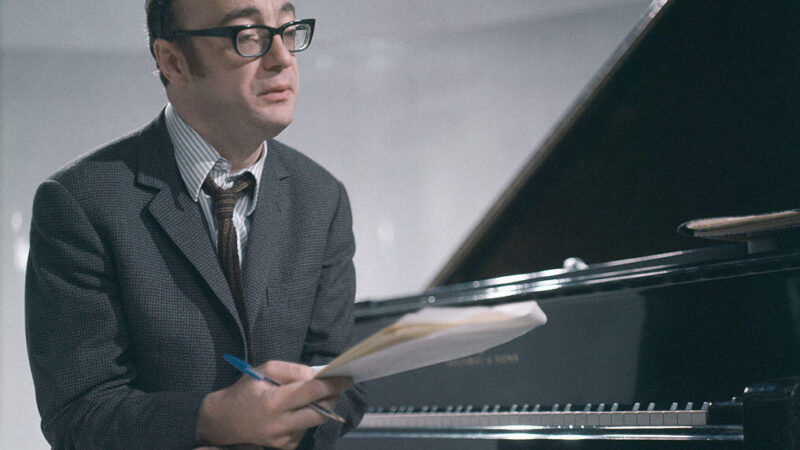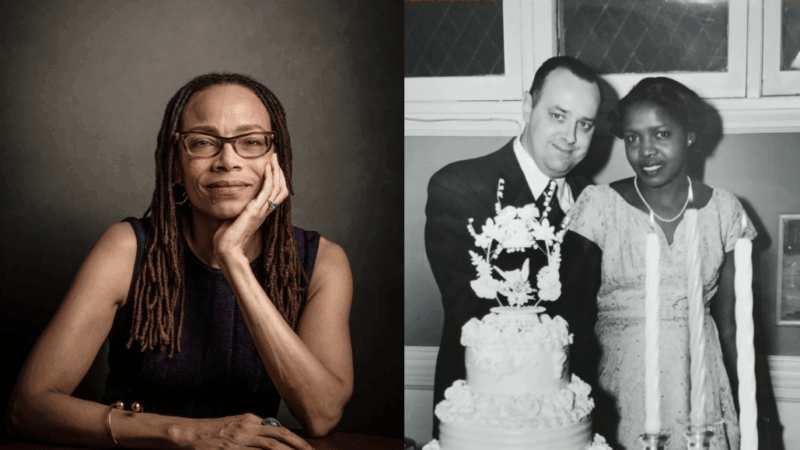Alfred Brendel, the cerebral pianist with a dry wit, dies at 94
Alfred Brendel, the thoughtful Austrian pianist who focused on the classics, has died. A statement from his representative said that Brendel passed peacefully on Tuesday morning at his home in London, surrounded by his family. He was 94.
Praised by The Boston Globe as “one of the defining performers of our age,” Brendel was best known as a performer who fused a keen intelligence with musical clarity. Other players were flashier; other players were, perhaps, more outwardly passionate. But Brendel had legions of ardent admirers.
Even Brendel himself confessed to documentary filmmaker Mark Kidel, who profiled him in 2000, that he found his success something of a mystery. “My career is atypical,” Brendel said. “I have not been a child prodigy. My parents were not musicians — there was no music in the house. I have a good memory, but not a phenomenal one. I’m not a good sight reader. I’m completely at a loss to explain why I made it!”
Brendel was widely praised for his cerebral, lucid piano playing. But Tim Page, a Pulitzer Prize-winning music critic, says his playing wasn’t for everyone’s tastes.
“Some people found him dry,” Page notes. “Some people found him perhaps a little bit over-scholastic. But there are others who really felt that this was a really first-class musical brain, working on some of the great music in the repertory.”
Alfred Brendel was born in Wiesenberg, in what is now the Czech Republic, on Jan. 5, 1931. He had a peripatetic childhood, spending his early years in what was then Yugoslavia as well as Austria, as the family followed his father around to jobs as an architectural engineer, a businessman, a resort hotel manager and director of a local cinema.
While Brendel had some formal training — including a few years at the conservatory in Graz, Austria — he was largely self-taught. After an appearance in London in the 1970s, his international star began to rise.
Brendel was best known for his interpretations of the standard classical repertoire. Regarding Mozart, he said many players shied away from the composer — either because they didn’t see his work’s complexity and found it too easy, or did see the complexity and found it too difficult.
“When you play the sonatas,” he told NPR in 2004, “you are all alone. And there are relatively few notes that you have to play. And every single one of these notes lays bare. It is a delicate balance between poise and seemingly casual delivery, which is necessary.”
He was the first pianist to record the complete piano works of Beethoven, with three separate cycles of the 32 sonatas. “Because I am not one of the pianists who learns a piece, plays it and discards it,” he told NPR, “I feel that one should keep in touch with those pieces which are really worth playing and live with them through a lifetime.”
Brendel also wrote volumes of poetry and essays on music. He was known for his wit — a lecture he gave at Cambridge, England, in 1984 was titled “Does Classical Music Have to Be Entirely Serious?” — which extended to a fondness for Dadaist art and a collection of kitsch objects.
Just weeks before his 78th birthday, Brendel retired from public performance, giving his last concert at the gilded Musikverein in Vienna, playing a youthful yet enigmatic piano concerto by Mozart and a solo piece by Liszt, another of his favorite composers. Still, he remained busy, writing, painting and lecturing for years to come.
Top 5 takeaways from the House immigration oversight hearing
The hearing underscored how deeply divided Republicans and Democrats remain on top-level changes to immigration enforcement in the wake of the shootings of two U.S. citizens.
Snowboarder Chloe Kim is chasing an Olympic gold three-peat with a torn labrum
At 25, Chloe Kim could become the first halfpipe snowboarder to win three consecutive Olympic golds.
Pakistan-Afghanistan border closures paralyze trade along a key route
Trucks have been stuck at the closed border since October. Both countries are facing economic losses with no end in sight. The Taliban also banned all Pakistani pharmaceutical imports to Afghanistan.
Malinowski concedes to Mejia in Democratic House special primary in New Jersey
With the race still too close to call, former congressman Tom Malinowski conceded to challenger Analilia Mejia in a Democratic primary to replace the seat vacated by New Jersey Gov. Mikie Sherrill.
A daughter reexamines her own family story in ‘The Mixed Marriage Project’
Dorothy Roberts' parents, a white anthropologist and a Black woman from Jamaica, spent years interviewing interracial couples in Chicago. Her memoir draws from their records.
FBI release photos and video of potential suspect in Guthrie disappearance
An armed, masked subject was caught on Nancy Guthrie's front doorbell camera one the morning she disappeared.






